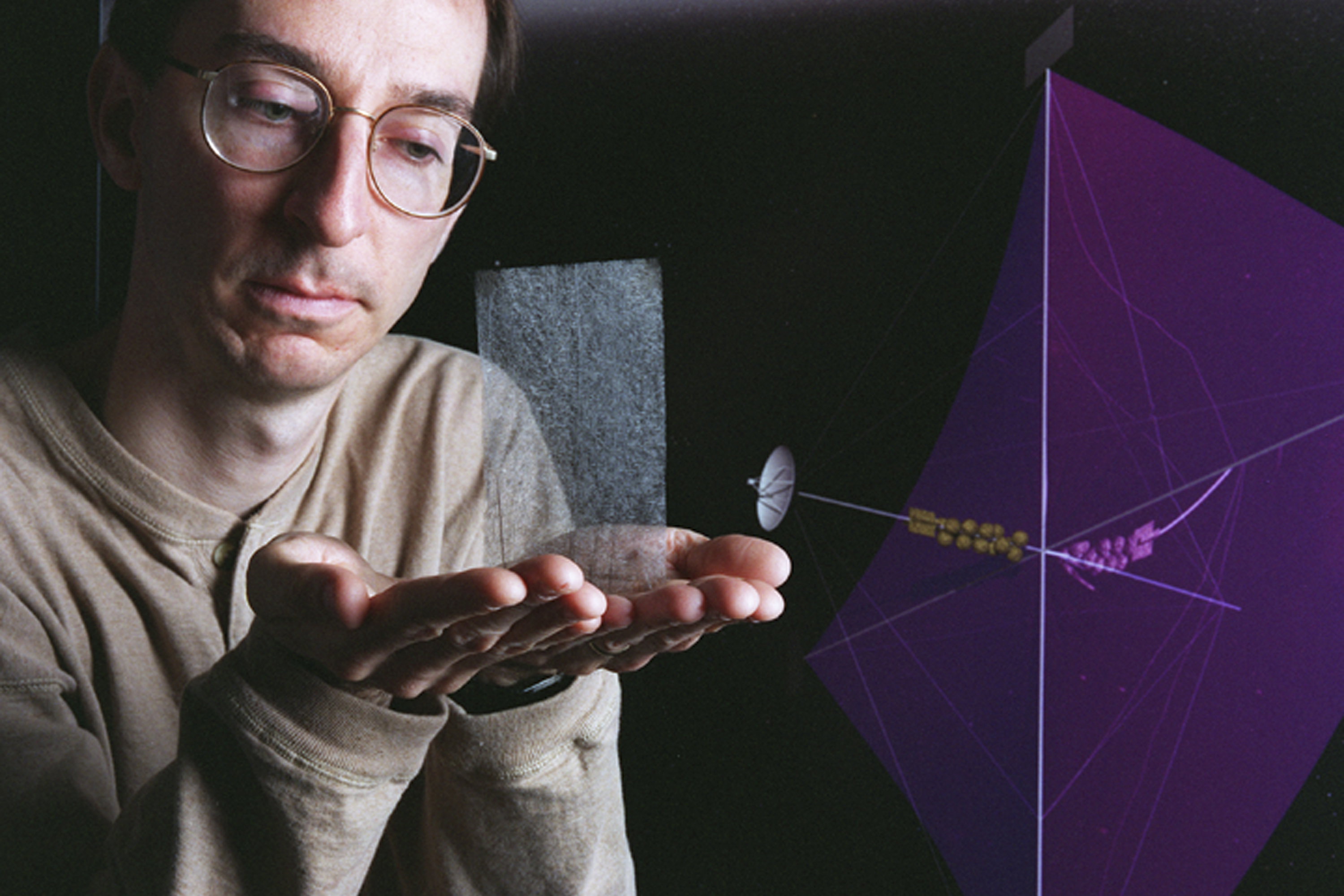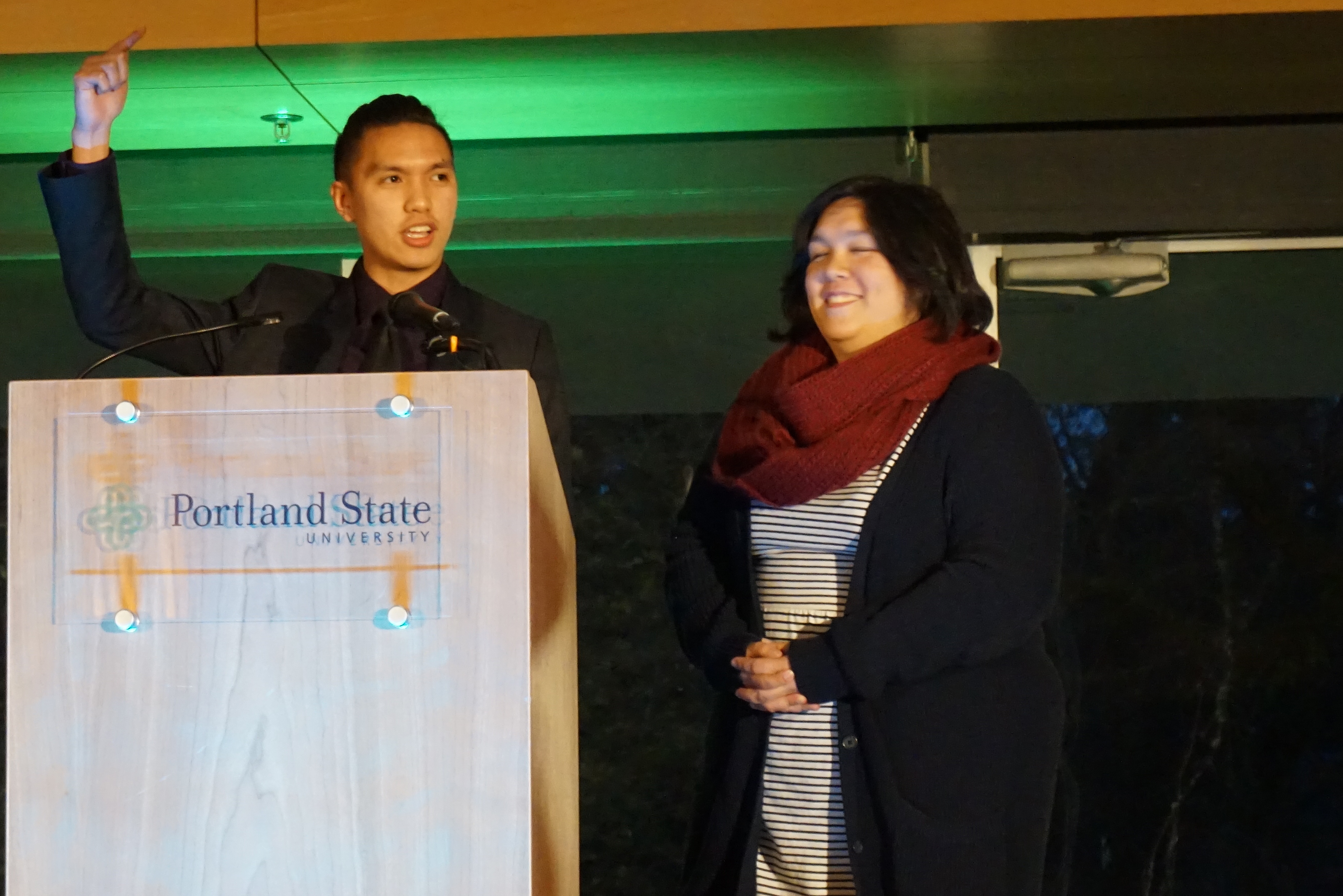The National Aeronautical and Space Administration’s deputy manager in its Advanced Concepts Office at the Marshall Space Flight Center, Les Johnson, will give a free lecture at Portland State commencing at 7 p.m. on April 18 in Smith Memorial Student Union, room 294.
Johnson’s free lecture is in partnership with Portland State Aerospace Society. “We welcome people from all educational backgrounds to come and join our effort in furthering space technologies and explorations,” said PSAS’s Risto Rushford, a business major.
PSAS formed in 1998, “because the [PSU] labs were safe. They were fine, but back then they weren’t as hands-on as they are now,” said PSAS co-founder Andrew Greenberg. “We really wanted a lab that could kill us—that was interesting and exciting and dangerous. So we thought, ‘Let’s do electronics for rockets.’ That was the beginning of this whole interdisciplinary engineering.”
In 1998 Greenberg was an undergraduate. Today he is an associate professor in the electrical and computer engineer department at PSU’s Maseeh College of Engineering and Computer Science.
Right now PSAS has three major projects: a rocket, a liquid fuel engine, which is a high-tech engine for the rocket, and a satellite known as OreSat, which will be flung into space by NASA. Following that, PSAS plans on engineering OreSat 2, which will have a different propulsion system.
“We’re interested in interplanetary stuff, and there are amazing technologies that are not new but are now miniaturized,” Greenberg said. “In something the size of a coffee can you can put in a high efficiency rocket that can get you to the moon or to Mars or to whereever. That’s not totally true, but everyday it gets easier to get out of low Earth orbit in a very small spacecraft.”
Johnson, in addition to being a physicist, is a NASA technologist and author. His lecture is intended to inspire anyone interested in space, space operations and the business of space. It is also intended to inspire PSAS with ideas for going forward with OreSat 2.
“[Johnson] is one of the NASA visionaries for little satellites, and the motors they need to do interplanetary work,” Greenberg said. “His stuff is mostly interplanetary work—everything outside of low Earth orbit, everything between here and the moon and the moon and the galaxy. Electrical propulsion and solar sails are his big things. He’s going to talk a lot about that.”
The lecture, titled “New Technologies to Enable Next Generation Space Exploration,” will discuss that low-cost space launch and, combined with innovative small spacecraft, have the potential to revolutionize space science and exploration; the one area that is keeping the next generation of small spacecraft from moving beyond near-Earth space is propulsion.
On his website, lesjohnsonauthor.com, Johnson is seen “holding a sample of solar sail material that may one day be used to send a spacecraft deep into the outer solar system using only the pressure of sunlight for propulsion.”
PSAS members like to joke that OreSat 2 is going to Jupiter. But, maybe it’s not a joke.
There’s a lot going on at PSAS, and, according to accounting major Josefine Mabry, “We’ve been growing.”
Everyone, students and non-students, is invited to Johnson’s lecture, and to become involved in PSAS. And, like the PSAS calendar says, “Bring all your space nerd friends.”






